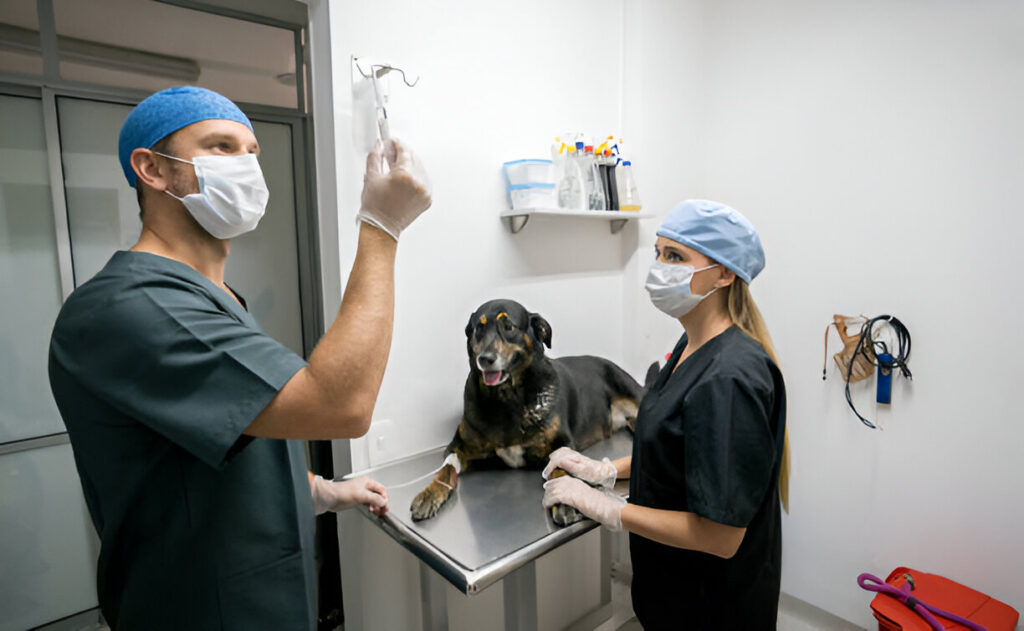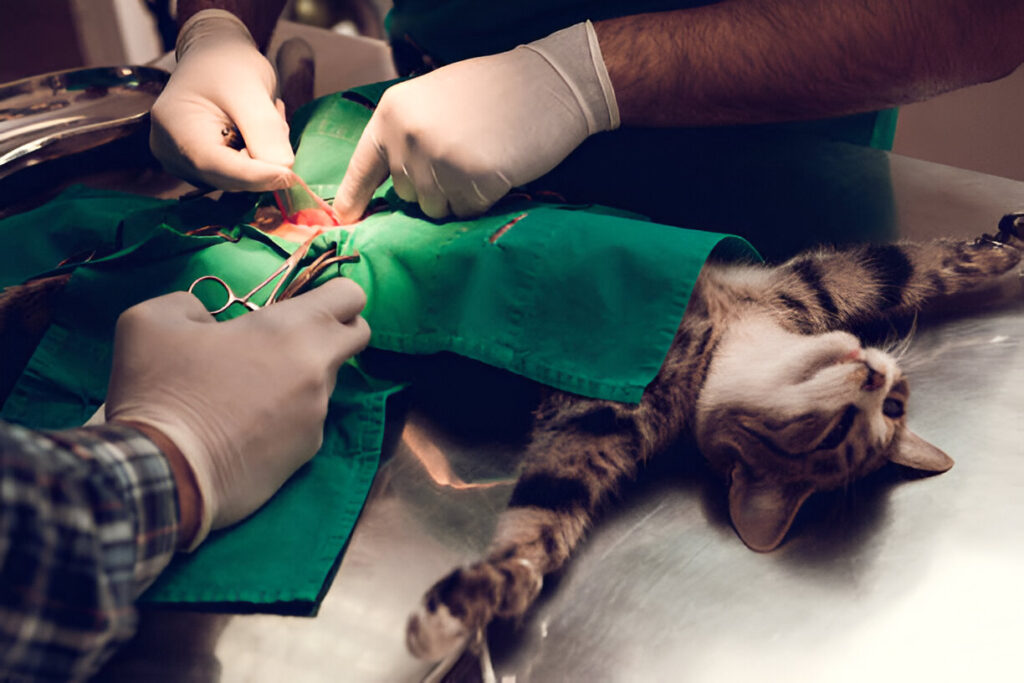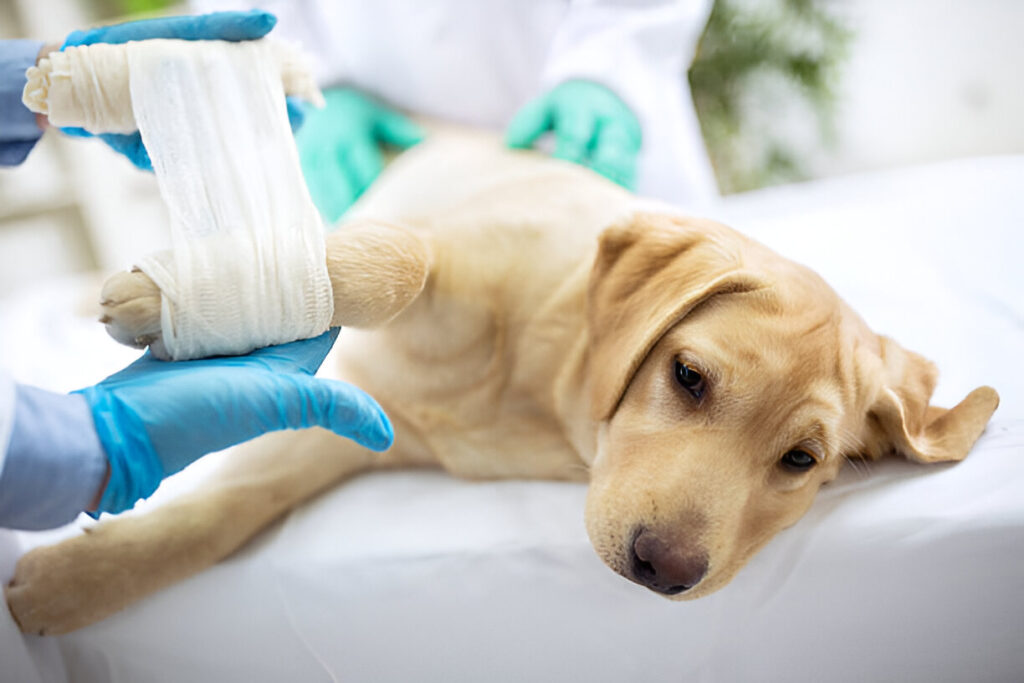The Importance of Organ Transplants in Pets
Organ transplants are often a last resort for pets whose organs are failing due to illness or injury. For these pets, an organ transplant can be a lifeline, offering a new chance at life. These medical procedures are life-saving and can extend a pet’s life, providing them with an opportunity to enjoy a healthier future. Organ transplants in pets, while rare, have grown in popularity as veterinary medicine advances. However, knowing what pet insurance covers organ transplant procedures is essential, as these treatments come at a significant cost, making pet insurance coverage critical.

Why Organ Transplants Are Critical for Some Pets
Certain conditions like kidney failure, liver disease, or heart failure may require organ transplants. For pets facing these severe conditions, organ transplants provide the best hope for survival. Without access to these surgeries, many pets would not survive. Organ transplants can significantly improve the quality of life for animals suffering from chronic diseases and increase their life expectancy.
How Organ Transplants Can Save Lives
Organ transplants for pets, although complex and costly, offer an opportunity to save lives and significantly improve the quality of life for animals facing critical health conditions. Here’s how they make a difference:
Restoring Vital Organ Function: When a pet’s organ fails, transplant surgery provides a way to restore lost function, offering a second chance at life. For pets with organ failure, a transplant can be the only viable option for survival.
Enhancing Longevity: Successful organ transplants can increase the lifespan of pets, especially those with serious health conditions. Pets who undergo organ transplants often experience an extended, healthier life after recovery.
Improving Quality of Life: Pets suffering from organ failure often endure pain and discomfort. Organ transplants provide an opportunity for them to live pain-free, with improved mobility and energy levels.
Life-Saving for Critical Conditions: In cases where a pet’s organ fails suddenly, such as heart, kidney, or liver failure, an organ transplant can be the difference between life and death. It offers the chance to restore life-sustaining functions in these vital organs.
Support for Rare Diseases: Organ transplants can be particularly crucial for pets diagnosed with rare or chronic conditions that affect organ function. With proper coverage, these pets have a fighting chance at recovery and normalcy.
Advancing Veterinary Medicine: Organ transplants push the boundaries of veterinary care, providing new hope for pets with previously untreatable conditions. This advancement allows veterinary medicine to save more lives every year.
Organ transplants offer an essential solution for pets in need of life-saving care. With the proper medical attention and support, these procedures can truly make a difference in the lives of pets and their families.
The Growing Need for Organ Transplantation in Veterinary Medicine
As veterinary medicine continues to evolve, the need for advanced procedures like organ transplants grows. With more pets living longer due to improved healthcare, age-related organ issues are becoming more common. This increased demand for organ transplants has prompted more veterinary hospitals to offer transplant services, leading to the need for insurance coverage that can help owners manage these expensive procedures.
What is Organ Transplantation for Pets?

Organ transplantation for pets is a complex and life-saving procedure that involves transferring a healthy organ from a donor to a recipient pet. This medical advancement has become increasingly important in veterinary care, providing hope for pets with life-threatening organ failure. Here’s what you need to know:
Definition of Organ Transplants for Pets: Organ transplantation involves replacing a failing organ, such as the liver, kidney, or heart, with a healthy one from a donor animal. This procedure can extend the life of pets suffering from severe organ failure.
Common Types of Organ Transplants in Pets
Kidney Transplants: Common in pets with kidney failure, particularly in dogs. The transplanted kidney helps the pet regain proper kidney function.
Liver Transplants: Performed on pets with liver disease or failure. A healthy liver from a donor pet can restore proper liver function.
Heart Transplants: While less common, heart transplants are considered for pets with severe cardiac issues that cannot be managed by other treatments.
The Process of Organ Transplantation: The procedure typically involves a detailed assessment of both the donor and recipient pet. After the surgery, the recipient pet requires careful monitoring and post-transplant care to ensure the new organ is accepted by the body.
How Organ Transplants Benefit Pet Health
Extended Lifespan: Pets receiving organ transplants often experience a significantly improved quality of life and extended lifespan.
Improved Health and Recovery: Transplants help restore organ function, allowing pets to live more comfortably and maintain a healthier life.
Veterinary Advances in Organ Transplantation: Over the years, veterinary medicine has seen remarkable advancements, making organ transplants a feasible option for pets with serious medical conditions. These developments have led to higher success rates and improved outcomes for transplanted pets.
Understanding organ transplantation for pets can give pet owners a better idea of its potential benefits and the need for specialized care. With the right support, these procedures can offer pets a chance at a better life and improve their health outcomes.
Defining Organ Transplants for Animals
An organ transplant for pets involves removing a damaged or non-functional organ and replacing it with a healthy one, usually from another animal. The most common types of transplants are kidney, liver, and heart transplants, although other organs may also be transplanted.
Common Types of Organ Transplants in Pets
Kidney transplants are the most commonly performed in pets, especially in cats and dogs suffering from kidney failure. Liver transplants are more common in dogs and can be life-saving for animals with severe liver disease. Heart transplants, though rare, are sometimes performed on dogs with heart failure that cannot be managed with medication.
How Organ Transplants Benefit Pet Health and Longevity

Organ transplants can dramatically improve a pet’s health, offering them the chance to live longer and healthier lives. After a successful transplant, pets often show remarkable recovery, with restored energy and vitality. These surgeries can save lives, prevent unnecessary suffering, and provide a better quality of life.
Does Pet Insurance Cover Organ Transplants?
The coverage of organ transplants under pet insurance is not a straightforward matter. Pet owners need to understand the specifics of their insurance policy to determine whether or not organ transplants are covered. Some pet insurance policies may cover these procedures, while others may exclude them or offer limited coverage.
The Truth About Pet Insurance and Organ Transplants
Organ transplants are often considered specialized, high-cost procedures, and not all pet insurance policies provide coverage for them. Policies that include organ transplant coverage tend to be more comprehensive, but they may come with higher premiums. It’s important for pet owners to carefully review their insurance policies to see what’s included.
How Pet Insurance Policies Address Organ Transplantation
Some pet insurance providers offer policies that include organ transplants under specific conditions. These policies may cover the costs of the surgery itself, along with any related procedures, like diagnostic tests, hospital stays, and follow-up care. However, there are usually exclusions and restrictions, especially for pre-existing conditions.
Are Organ Transplants Included in Most Pet Insurance Plans?
Unfortunately, most pet insurance plans do not cover organ transplants as a standard benefit. These surgeries are rare and expensive, so many insurance companies exclude them from their coverage. Pet owners must specifically choose policies that include organ transplants or opt for add-on coverage to include these procedures.
Pet Insurance Plans: What’s Typically Covered?

Standard pet insurance plans often cover accidents, illnesses, surgeries, and diagnostic tests, but they do not always cover major procedures like organ transplants. Some plans offer comprehensive coverage that includes surgery for common conditions like broken bones or infections, but organ transplants are often a specialized benefit.
Accident, Illness, and Surgery Coverage in Pet Insurance
Basic pet insurance typically covers accidents, illnesses, and standard surgeries, such as those related to broken bones or infections. However, complex surgeries, such as organ transplants, may not be covered. It’s important to carefully assess the fine print in a pet insurance policy to see if organ transplant coverage is included.
Exploring Common Pet Health Procedures Covered by Insurance
In addition to accidents and illness treatments, some pet insurance policies cover more routine health procedures, such as vaccinations, spaying/neutering, and emergency visits. However, organ transplants, due to their high cost and complexity, are often excluded from standard coverage.
What You Need to Know About Coverage Limitations
Pet insurance policies can come with a variety of limitations. Pre-existing conditions, certain breed-specific issues, and high-cost surgeries like organ transplants may not be covered, or they may be covered only under specific circumstances. It’s essential to understand these limitations before purchasing a policy.
What to Look for in Pet Insurance When Considering Organ Transplants
When considering pet insurance that covers organ transplants, look for policies that offer comprehensive coverage, including high-cost surgeries. It’s also crucial to ensure the plan includes both the surgery and any related expenses, such as post-surgical care and medication. Additionally, confirm that the provider covers transplants for pets with pre-existing conditions if applicable.
Is Organ Transplant Coverage a Standard Offering?
Organ transplant coverage is not a standard offering in most pet insurance plans. Some insurance companies may offer add-ons or specialized policies that cover organ transplants, but they are not typically included in basic or standard coverage plans.
What Makes a Pet Insurance Plan Stand Out for Transplants
A standout pet insurance plan for organ transplants offers comprehensive coverage, minimal exclusions, and competitive premiums. It should include post-surgical care, emergency visits, medications, and regular monitoring to ensure the pet’s recovery.
How to Find a Pet Insurance Policy That Covers Organ Surgery
To find a pet insurance policy that covers organ surgeries, start by researching providers that specialize in offering extensive coverage for major medical procedures. Compare different plans and check for detailed policy information regarding organ transplants.
Specific Pet Insurance Providers That Cover Organ Transplants
Some pet insurance providers, such as Trupanion and Nationwide, are known to offer comprehensive coverage that may include organ transplants under specific conditions. Researching the top providers and their offerings is the best way to find coverage that includes these procedures.
How Leading Insurance Companies Stack Up for Major Pet Surgeries
When comparing pet insurance companies for major surgeries, consider their coverage options, exclusions, and reimbursement policies. Some providers may offer full reimbursement for organ transplants, while others may only cover a portion of the costs. Review their customer satisfaction ratings and financial stability before making a choice.
What Makes These Providers a Good Choice for Organ Transplants
The best pet insurance providers for organ transplants are those that offer comprehensive, reliable coverage with minimal exclusions. They should have a good reputation for processing claims quickly and providing support during critical procedures.
Eligibility Requirements for Organ Transplant Coverage
Organ transplant coverage may have specific eligibility requirements, such as the pet’s age, breed, or health history. Pet owners should inquire about these requirements to ensure they meet the criteria for coverage.

How to Qualify for Organ Transplant Coverage Through Pet Insurance
To qualify for organ transplant coverage, pets typically need to be insured well before any major medical issues arise. Early enrollment and ongoing good health can increase the chances of qualifying for transplant-related coverage.
Age and Health Factors That Affect Organ Transplant Eligibility
Older pets or those with pre-existing conditions may face challenges when it comes to qualifying for organ transplant coverage. Insurance companies may impose age limits or exclusions based on a pet’s health history.
Are There Breed-Specific Limitations for Transplant Coverage?
Certain breeds may be more prone to specific health conditions that require organ transplants. In some cases, pet insurance companies may impose breed-specific exclusions, so it’s important to inquire about these limitations when selecting a policy.
Exclusions in Pet Insurance Related to Organ Transplants
Exclusions are common in pet insurance policies related to organ transplants. Pre-existing conditions, as well as certain procedures, may not be covered. Always read the policy details carefully to understand these exclusions.
Common Exclusions You Should Know About
Pet insurance policies often exclude pre-existing conditions, certain types of surgeries, and high-cost treatments like organ transplants. Knowing these exclusions can help pet owners make more informed decisions about their insurance needs.
Pre-existing Conditions and Their Impact on Coverage
If a pet has a pre-existing condition that could lead to the need for an organ transplant, it may not be covered under standard insurance policies. Pre-existing conditions can create a significant barrier to receiving the necessary treatment.
Is Organ Transplantation Only Covered for Emergencies?
Some pet insurance plans may limit organ transplant coverage to emergencies only. It’s essential to clarify whether your insurance plan covers organ transplants for non-emergency procedures as well.
Cost of Organ Transplants for Pets and How Insurance Helps
The cost of organ transplants can be astronomical, ranging from thousands to tens of thousands of dollars. Pet insurance that covers these procedures can significantly reduce the financial burden, helping owners afford the life-saving treatment their pets need.
Breaking Down the Costs of Organ Transplants for Animals
Organ transplants for pets often involve multiple costs, including pre-surgery diagnostics,
the cost of the organ itself, surgery fees, and post-surgical care. Insurance can help offset these substantial costs.
How Pet Insurance Can Help Offset High Surgery Costs
Pet insurance can greatly reduce the out-of-pocket expenses associated with organ transplants. Depending on the policy, owners may only need to cover the deductible and co-pays, while the insurance company covers the bulk of the surgery and related expenses.
Understanding Deductibles, Copayments, and Premiums for Transplant Coverage
Pet insurance policies often come with deductibles, co-payments, and premiums that vary depending on the coverage level. Understanding these terms and how they affect the overall cost of transplant coverage is essential for choosing the right policy.
How Organ Transplant Coverage Can Benefit Pet Owners
Having organ transplant coverage can provide immense peace of mind for pet owners. It ensures that if a life-saving transplant is required, finances won’t be a major concern. This coverage can offer comfort, knowing that their pet’s surgery and recovery will be well taken care of.
How Insurance Eases Financial Stress During Critical Times
Facing the possibility of an organ transplant for a beloved pet can be emotionally and financially stressful. Pet insurance eases this burden, offering financial protection and allowing owners to focus on the care and recovery of their pets instead of the costs.
The Value of Early Diagnosis in Transplant Coverage
Early diagnosis of organ issues can help ensure that a pet qualifies for organ transplant coverage. Catching conditions early can prevent complications, making the surgery more likely to be successful and the pet more likely to recover.
Peace of Mind for Pet Owners Facing Major Medical Procedures
Pet owners who have insurance that covers organ transplants can rest easier knowing they won’t have to make financial sacrifices to provide their pets with the best care available. This peace of mind is invaluable during a time of crisis.
Does Pet Insurance Cover Pre-existing Conditions for Organ Transplants?
Pre-existing conditions may complicate the process of getting organ transplant coverage, as many policies exclude these conditions. However, some insurers may offer policies that cover organ transplants despite pre-existing conditions, though this is less common.
The Impact of Pre-existing Conditions on Organ Transplant Coverage
Pre-existing conditions can make it harder for pets to qualify for organ transplant coverage. Insurance companies may classify pets with certain chronic conditions as too high-risk to insure, limiting their eligibility.
How to Navigate Coverage Denials for Pre-existing Conditions
If a pet is denied coverage for an organ transplant due to a pre-existing condition, pet owners may want to consider policies with more inclusive coverage or work with their veterinarian to explore other treatment options that may be covered.
What Are Your Options If Pre-existing Conditions Are Not Covered?
If a pre-existing condition disqualifies a pet from receiving transplant coverage, owners can explore specialized pet insurance policies that are more lenient or provide coverage for pre-existing conditions with certain limitations.
Can You Add Organ Transplant Coverage to Your Existing Policy?
In some cases, pet owners can upgrade their existing policies to include coverage for organ transplants. Many providers offer add-ons for major surgeries, including organ transplants, which can be added to an existing plan for an additional cost.
Options for Upgrading Your Policy to Include Organ Transplants
To add organ transplant coverage to an existing policy, owners should contact their insurer to inquire about available options. Adding coverage may require an additional premium or a change in coverage limits.
Are There Add-Ons Available for Pet Transplant Coverage?

Yes, many pet insurance providers offer add-ons or riders that can be added to your existing policy to provide specific coverage for major medical procedures like organ transplants. These add-ons allow you to customize your pet insurance plan to better suit your pet’s needs, especially if you’re concerned about the possibility of a high-cost medical procedure. Here’s what you need to know about add-ons for pet transplant coverage:
- Customizable Coverage for Major Procedures: Some insurers offer add-ons specifically designed for high-cost surgeries, including organ transplants. These add-ons provide coverage for the procedure itself, as well as the associated recovery costs, such as follow-up visits, medications, and rehabilitation. By adding this coverage to your existing policy, you ensure that major surgeries like organ transplants are included in your plan.
- Additional Coverage for Pre-Transplant Testing: Add-ons can sometimes extend beyond just the surgery itself to include diagnostic tests or pre-transplant care. These tests may include blood work, imaging, or other evaluations needed before the transplant procedure. Including these in your policy can save you significant out-of-pocket costs should your pet require extensive testing before the transplant.
- Cost of Post-Surgery Care and Recovery: Post-surgery care, such as rehabilitation, physiotherapy, and monitoring, can be expensive. Some add-ons help cover these recovery costs, ensuring that your pet receives comprehensive care throughout the healing process. Be sure to ask your insurance provider about including post-transplant care in the add-on to fully support your pet’s recovery journey.
- Optional Transplant Coverage for Older Pets: For senior pets, some insurance providers offer optional transplant coverage add-ons that specifically address the challenges of organ transplant procedures for aging animals. These riders can help make transplants more accessible for older pets who may not otherwise be covered under a standard plan.
- Pre-existing Conditions Riders: In some cases, insurers provide add-ons that extend limited coverage for pets with pre-existing conditions. Although pre-existing conditions typically aren’t covered under standard pet insurance policies, certain add-ons may offer partial or conditional coverage for pets with chronic health issues who may need organ transplants in the future.
How to Customize Your Pet Insurance for Major Surgeries
Customization is key when it comes to ensuring that pets are covered for complex procedures like organ transplants. By discussing needs with an insurance advisor, owners can ensure that their pet’s future medical needs are met.
How the Claims Process Works for Organ Transplants
Filing a claim for an organ transplant involves several steps, including submitting the relevant documentation, working with your veterinarian, and waiting for the insurer’s approval.
How to File a Claim for Organ Transplant Surgery
To file a claim, gather all required paperwork from your veterinarian, including diagnostic tests, surgical estimates, and post-surgical care plans. Submit this documentation to your insurance provider for review.
The Role of Your Vet in the Claims Process
Your veterinarian plays a critical role in the claims process. They are responsible for providing detailed medical records and recommendations for treatment to help the insurance company evaluate the claim.
Expected Timeframes for Claim Processing and Payouts
The time it takes for a claim to be processed can vary, but most pet insurance companies aim to process claims within 30 days. The speed of payout depends on the complexity of the procedure and the completeness of the claim submission.
Success Stories: Real-Life Pet Transplant Experiences
Inspiring stories abound of pets that underwent organ transplants and recovered successfully, often with the aid of comprehensive insurance coverage. These heartwarming stories show that, with the right care and support, pets can thrive post-transplant.
How Pet Insurance Helped Cover Organ Transplant Costs for Pets
Many pet owners have shared how insurance coverage for organ transplants helped them afford costly surgeries for their pets. The financial relief provided by insurance makes these critical procedures accessible to more pet owners.
Heartwarming Stories of Pets Receiving Transplants and Thriving
Some remarkable success stories involve pets that were saved by organ transplants. Their recovery is a testament to the power of modern veterinary medicine and the importance of insurance in covering these transformative surgeries.
Lessons Learned from Pet Owners Who Navigated Organ Transplant Claims
Pet owners who have navigated the process of filing transplant claims often stress the importance of being proactive in understanding insurance coverage, documenting medical procedures, and working closely with their veterinarians to ensure everything is in place.
How to Find the Best Pet Insurance for Organ Transplants
Finding the right pet insurance for organ transplants requires thorough research. Compare coverage options, premiums, and exclusions. Look for insurers with a good track record in handling major medical claims, particularly transplants.
Research Tips for Finding Top Pet Insurance Policies

When it comes to finding the best pet insurance for your furry friend, thorough research is key. Here are some essential tips to guide you in selecting the right policy:
Compare Multiple Providers: Always compare several pet insurance providers to find the best options available. Each company has different coverage levels, premiums, and benefits, so it’s important to evaluate all your choices.
Check Coverage Options: Look for comprehensive coverage that includes both accident and illness coverage, as well as specialized treatments like organ transplants, surgeries, and emergency care.
Read the Fine Print: Be sure to read the policy terms carefully to understand exclusions, limits, and the claims process. This will help you avoid surprises later on.
Look for Customization Options: Some insurers offer customizable plans that allow you to tailor coverage to your pet’s specific needs, such as adding coverage for organ transplants or chronic conditions.
Consider Customer Reviews: Check customer reviews and testimonials to get an idea of the insurer’s reputation, claims process, and customer service. Real-life experiences can provide valuable insights.
Understand Waiting Periods: Be aware of any waiting periods that may apply to certain types of coverage, such as organ transplants. Policies with no waiting period for emergency or specialized care can be especially beneficial.
Evaluate Premiums and Deductibles: Compare the cost of premiums and deductibles between different policies. Choose one that fits your budget while still providing adequate coverage for your pet’s health.
Check for Add-On Options: Many pet insurance providers offer add-ons for specific health concerns or major surgeries like organ transplants. Make sure to check if these options are available.
Research Financial Strength: Ensure that the insurance provider is financially stable and reliable, so they can cover your pet’s health expenses without issues.
Look for 24/7 Support: Choose a provider that offers round-the-clock customer support to assist you with urgent claims and questions, especially during emergencies.
By following these research tips, you can confidently select a top pet insurance policy that will provide the coverage your pet needs, including organ transplant protection, for years to come.
The Importance of Comparing Coverage Options
Comparison shopping is vital to ensuring you find the best coverage for your pet’s needs. Carefully review the terms and conditions of different policies, paying special attention to exclusions, coverage limits, and premiums.
How to Ensure Your Pet’s Specific Needs Are Met
To ensure your pet’s specific needs are met, make sure your chosen insurance plan covers potential organ transplant procedures. Tailoring the policy to your pet’s health requirements can prevent surprises.
Does Pet Insurance Cover Post-Transplant Care?
Post-transplant care is an essential part of ensuring a successful recovery, and some pet insurance policies may include coverage for follow-up visits, medication, and long-term monitoring after the surgery. Always verify if these services are included in your plan.
What Happens After the Transplant? Does Insurance Cover Recovery?
Post-surgery, pets often need medications, check-ups, and long-term care. Some pet insurance policies extend coverage for these services, helping to manage the recovery process.
The Importance of Aftercare and Medication Coverage
Aftercare is critical to a pet’s recovery following an organ transplant. Insurance that covers aftercare, including medications and follow-up appointments, helps ensure the transplant’s success.
Is Long-Term Monitoring Included in Post-Transplant Coverage?
When it comes to post-organ transplant care for pets, long-term monitoring can play a crucial role in ensuring your pet’s recovery and overall health. Here’s what you should know about long-term monitoring and its inclusion in pet insurance coverage:
Coverage for Ongoing Vet Visits: Many pet insurance plans include coverage for routine post-transplant check-ups, which help track your pet’s recovery process and detect any potential complications early.
Medication and Lab Tests: Some policies may cover the costs of ongoing medications and diagnostic tests, such as blood work, which are essential for monitoring organ function after a transplant.
Limitations on Duration: Post-transplant coverage may only extend for a certain period, typically ranging from a few months to a year, depending on the insurance provider. Be sure to review your policy for the specifics.
Specialized Care: Not all insurers provide coverage for specialized treatments like organ rejection prevention or other specific care related to organ transplants. You may need to check if such services are included in your plan.
Exclusions and Restrictions: Certain insurance providers may exclude coverage for long-term care if the transplant was deemed a pre-existing condition or if it occurred after a certain age. It’s vital to clarify these details before enrolling.
Optional Add-ons: If long-term monitoring isn’t included in your standard policy, some insurers offer optional add-ons or riders that extend coverage for post-transplant care. These can ensure continuous support as your pet recovers.
Long-term monitoring is an essential part of a pet’s post-transplant care, so always confirm with your insurance provider whether these services are included or if they can be added to your policy.
Are Organ Transplants Covered for Older Pets?

Older pets may face challenges in qualifying for organ transplant coverage, as some insurers have age restrictions or exclusions for senior pets. However, there are policies available that may cover these procedures for older animals.
How Age Affects Pet Organ Transplant Coverage
Age can significantly impact whether a pet qualifies for coverage. Older pets may be deemed higher risk by insurance providers, potentially limiting the types of coverage available to them.
The Challenges of Insuring Older Pets for Major Surgeries
Insuring older pets for major surgeries like organ transplants can be tricky. Many insurers impose age limits or higher premiums for senior pets, and some may exclude coverage for pets over a certain age.
Are Senior Pets Excluded from Coverage for Organ Transplants?
While some insurance policies may exclude organ transplant coverage for senior pets, others may offer limited coverage for these procedures. Check with your provider to understand their policy regarding older pets.
Understanding Pet Insurance Premiums for Organ Transplant Coverage
Premiums for organ transplant coverage are generally higher than for standard pet insurance. This reflects the cost of the surgery and the associated risks. Be prepared for higher premiums when seeking comprehensive coverage.
How Premiums Are Affected by Organ Transplant Coverage
Adding organ transplant coverage to a pet insurance policy may lead to increased premiums due to the high cost of these procedures. However, the benefit of having this coverage can far outweigh the additional cost in the event of an emergency transplant.
Balancing Cost and Coverage for Major Pet Surgeries
When choosing insurance for your pet, weigh the cost of premiums against the potential benefit of coverage. Consider how likely it is that your pet will require a major surgery like an organ transplant and whether the policy’s coverage is worth the added expense.
Are Higher Premiums Worth the Benefit of Transplant Coverage?
Higher premiums may be worth it if you want peace of mind knowing your pet is covered for potentially life-saving organ transplants. If your pet is at risk for organ failure, the added premium could prove invaluable.
What Happens if Your Pet’s Organ Transplant is Not Covered?
If your pet’s organ transplant is not covered, you may be left to pay the full cost of the surgery out-of-pocket. This can create a significant financial burden, especially for expensive procedures.
How to Proceed if Organ Transplant Coverage is Denied
If coverage for organ transplants is denied, you may be able to appeal the decision or seek other avenues of financial assistance. Veterinary financing, personal loans, or fundraising campaigns are some alternatives that can help with the cost.
Exploring Other Funding Options for Organ Transplants
If your pet’s transplant is not covered by insurance, other funding options include veterinary financing, personal loans, or crowdfunding. These options can help manage the high costs associated with critical surgeries.
The Role of Veterinary Financing and Personal Loans
Veterinary financing and personal loans can provide immediate financial assistance for pet surgeries. These options may have lower interest rates and longer repayment terms, making them more manageable for pet owners.
What Are the Risks of Not Having Pet Insurance for Organ Transplants?
Without pet insurance for organ transplants, the cost of the procedure can quickly become overwhelming. Pet owners may face financial strain or have to forgo necessary care, which can negatively impact their pet’s health.
The Financial Impact of Paying Out-of-Pocket for Pet Surgeries
Paying for organ transplants without insurance can be a major financial burden, potentially costing thousands of dollars. This financial strain can make it difficult for pet owners to afford other important aspects of their pet’s care.
How Lack of Insurance Can Affect Your Pet’s Health and Recovery
Without the financial backing of insurance, pet owners may have to make difficult decisions about their pet’s care. This could lead to delays in treatment or a lack of necessary post-surgical care, which can affect recovery.
Why Waiting to Get Insurance Could Be a Risk for Pet Owners
Delaying the purchase of pet insurance until an emergency arises can be risky, as pre-existing conditions may not be covered. It’s essential to secure coverage early to ensure protection against future major medical expenses.
Comparing Pet Insurance Companies for Organ Transplant Coverage
When comparing providers, look for coverage options, exclusions, and claim processes that meet your needs. Not all companies offer transplant coverage, so thorough research is necessary.
What to Look for When Choosing Between Providers
Consider coverage limits, premiums, customer service, and the overall reputation of the company when choosing a provider. It’s important to choose one that fits your pet’s specific needs, including any potential transplant needs.
How to Assess Coverage, Cost, and Customer Support
Assessing pet insurance involves more than just comparing premiums. Consider the breadth of coverage, any limitations, and the provider’s ability to support you during the claims process, especially for complex surgeries.
A Quick Comparison of Leading Pet Insurance Options for Organ Transplants
When evaluating pet insurance companies, look for those with experience in covering high-cost surgeries like organ transplants. Check their customer service reviews and claim satisfaction rates.
The Impact of Organ Transplant Insurance on Pet Health Outcomes
Having insurance coverage for organ transplants can significantly improve a pet’s health outcomes. With insurance, pets can undergo timely treatments, which leads to faster recovery and better long-term health.
Faster Treatment, Better Recovery: The Benefits of Insured Transplants
Pets with organ transplant coverage can receive faster treatment, which leads to better outcomes. Quick interventions are essential for successful surgeries and recovery, which is made possible with proper insurance.
How Immediate Coverage Helps Save Lives and Improve Pet Health
Immediate access to transplant coverage can mean the difference between life and death for pets in critical condition. The timely treatment facilitated by insurance can improve the chances of a successful recovery.
Can Pet Insurance Influence the Success Rate of Organ Transplants?

Pet insurance can play a significant role in the overall success rate of organ transplants for pets. While insurance itself doesn’t directly affect the surgical procedure, it does provide the financial stability and resources necessary for the best possible care. Here’s how pet insurance can indirectly impact the success of organ transplants:
1. Access to Top Veterinary Care
With the coverage provided by pet insurance, pet owners are more likely to afford high-quality veterinary hospitals and specialists who have experience in performing complex organ transplants. This access to experienced professionals can significantly enhance the likelihood of a successful outcome.
2. Prompt Treatment and Follow-Up
Organ transplants require immediate and ongoing medical attention to ensure proper recovery. Pet insurance helps mitigate the financial strain that might otherwise delay or limit timely medical treatment. With coverage, pet owners can prioritize their pet’s health without worrying about the high costs of follow-up care, reducing the risk of complications.
3. Early Diagnosis and Pre-Transplant Care
Pet insurance often covers diagnostic tests and evaluations leading up to an organ transplant. Early detection of issues can ensure that pets receive the care they need before the problem worsens, potentially improving the success rate of the transplant itself. By addressing issues early, insurance gives pets a better chance for a smoother transition and recovery after surgery.
4. Reduced Financial Stress
The financial burden of organ transplants can be overwhelming, but with pet insurance, pet owners experience less stress. This allows them to focus on their pet’s recovery instead of worrying about how to afford post-surgery care, further contributing to the overall success of the procedure.
5. Continued Care for Long-Term Health
After the transplant, ongoing monitoring and medication are critical to ensuring the organ’s long-term success. Pet insurance that covers these aspects allows for consistent post-operative care, ensuring your pet remains healthy and continues to thrive.
Conclusion: What Pet Insurance Covers Organ Transplant? Find Out Now
In conclusion, pet insurance can provide invaluable support for pet owners facing the high costs of organ transplants. Whether you’re preparing for a major medical procedure or simply looking for peace of mind, understanding how insurance works for organ transplants ensures you’re well-prepared. With the right coverage, you can help your pet recover from serious health issues without the added financial stress. Make sure to compare policies, understand what is covered, and choose a plan that fits your pet’s needs. Investing in pet insurance today could save you thousands in the future, allowing you to focus on your pet’s health and happiness.
FAQ: What Pet Insurance Covers Organ Transplant? Find Out Now
1. Does pet insurance cover organ transplants?
Yes, many pet insurance policies can cover the cost of organ transplants. However, coverage can vary depending on the insurer and the specific plan. Be sure to check the terms of your policy for details on major medical procedures.
2. Is organ transplant coverage available for senior pets?
While some insurers may impose age limits or restrictions on senior pets, certain policies do provide coverage for organ transplants in older animals. It’s important to check with your provider for specific eligibility details.
3. Are pre-existing conditions covered under pet insurance for organ transplants?
Pre-existing conditions are typically not covered by most pet insurance policies. However, some insurers may offer limited coverage for pets with pre-existing conditions if they have been symptom-free for a certain period.
4. How much does pet insurance for organ transplants cost?
The cost of pet insurance for organ transplants will vary based on factors such as the age and health of your pet, the level of coverage, and the insurer. Typically, premiums for comprehensive plans with organ transplant coverage are higher than standard policies.
5. Can I add organ transplant coverage to my existing pet insurance policy?
Yes, some pet insurance providers offer add-ons for major surgeries like organ transplants. You can contact your insurer to discuss adding this coverage to your existing plan.
6. What should I do if my pet’s organ transplant is not covered?
If organ transplant coverage is not included in your policy, you may explore alternative options like veterinary financing, personal loans, or crowdfunding to help cover the costs of surgery.
7. Does insurance cover post-transplant care for pets?
Some pet insurance plans do cover post-transplant care, including follow-up visits, medication, and long-term monitoring. Always verify what is included in your policy to ensure your pet’s recovery is fully covered.
<script type="application/ld+json">
{
"@context": "https://schema.org",
"@type": "BlogPosting",
"mainEntityOfPage": {
"@type": "WebPage",
"@id": "https://yourpetsdoc.com/wp-admin/post.php?post=1002&action=edit"
},
"headline": "What Pet Insurance Covers Organ Transplant? Good find Out 1st Now",
"description": "Organ transplants are often a last resort for pets whose organs are failing due to illness or injury. For these pets, an organ transplant can be a lifeline, offering a new chance at life.",
"image": "https://yourpetsdoc.com/wp-content/uploads/2025/02/what-pet-insurance-covers-organ-transplant-9-1024x631.jpg",
"author": {
"@type": "Person",
"name": "yourpetsdoc.com",
"url": "https://yourpetsdoc.com/wp-admin/edit.php"
},
"publisher": {
"@type": "Organization",
"name": "yourpetsdoc.com",
"logo": {
"@type": "ImageObject",
"url": "https://yourpetsdoc.com/"
}
},
"datePublished": "2025-02-07",
"dateModified": "2025-02-07"
}
</script>




